If modern technology can be oppressive, it can also be emancipatory. If it can dilute experiences, it can also increase their accessibility. Even the Giant's Causeway Experience can help to educate us, in however formulaic a fashion. History-as-heritage is arguably preferable to no history at all. Such cultural technology opens up a world of possibility unimaginable to our ancestors. Only a dialectical viewpoint, one which weighs the gains of modernity along with its losses, can do justice to it. And this is inimical alike to the cultural Jeremiahs, for whom civilisation has been going downhill ever since the invention of the wheel, and the wide-eyed cultural progressivists, for whom R.E.M. has thankfully put paid to Rembrandt.Can such a (more hopeful) view of modern life fit with Sayers' argument? [UPDATE: In the current issue of the New Yorker, an article about Florida reads as a demonstration of the kind of judgment Sayers describes. A companion video to the article can be viewed here.]
Avant-garde artists like the Futurists and Surrealists plucked new kinds of art from the very speed, flatness, flux, randomness, irregularity, fragmentation and multiplicity of modern experience. A whole new poetics seemed possible. The most celebrated poem of the twentieth centure, T.S. Eliot's The Waste Land, registers this haemorrhaging of experience from modern urban life, but views it as a spiritual catastrophe. Poets like Mayakovsky, Brecht and Breton, by contrast, did not look upon the emptying of the human subject with horror. Maybe being scooped out and dismantled might prove a prelude to being put together again, this time more productively. To learn something, as George Bernard Shaw remarked, always feels at first like losing something. 20-21.
VVP: Art 434 & Engl. 410
- Dan Callis and Chris Davidson
- Website for Vision Voice and Practice: An Interdisciplinary Course in Art and Creative Writing
Thursday, February 12, 2009
Learning and Losing
The discussion about Dorothy Sayers' remarkable "Why Work?" today was fantastic, but I fear her essay can make us (or me) feel despair, given how far things have progressed away, in the last sixty or so years, from her vision of work and society. This afternoon, I was reminded of the following passage from Eagleton, Chapter 1, which speaks to the concerns we have about technological progress and its consequences:
Subscribe to:
Post Comments (Atom)







































































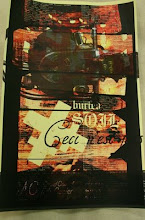
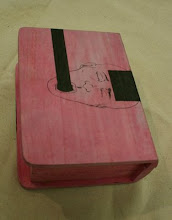
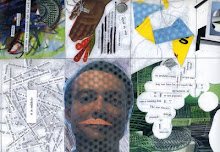
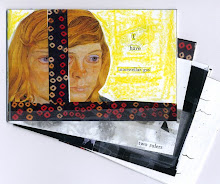
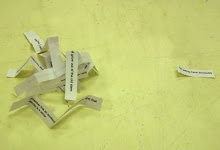
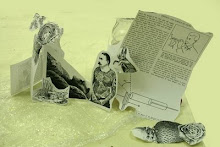

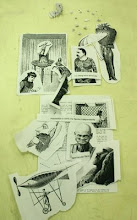
No comments:
Post a Comment